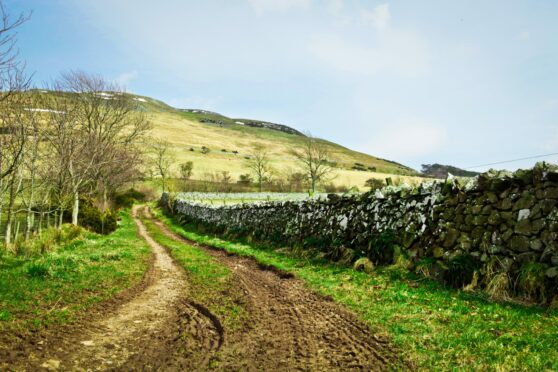Tribalism is all too common, not least in the world of football and politics.
The idea that you pick a side, back them unconditionally, shout loudly and disregard any other viewpoints appears to work in some circumstances. However, when it comes to rural Scotland it is completely counterproductive.
Whether it is sheep versus trees, holiday accommodation versus long-term housing or even differing soil management techniques, there is a feeling that we appear to be entering into tribal territory.
The reality is it is rarely black and white and as with everything, there needs to be balance.
The role of land management in Scotland’s economy and combatting climate change cannot be underestimated, and there are challenges around how it is best used.
Scottish Land and Estates (SLE) has been calling for greater integration of thinking around differing land uses for a long time, arguing for the need to ensure that policies are not competing with each other but instead offer genuine options for land managers to select the use which is best suited to achieve beneficial outcomes on all levels.
We don’t see that there is any need for conflict between land uses: we should have the ability to meet planting targets, while still maintaining output from agriculture, by using the land best suited for each activity.
That doesn’t mean large monocultures of each in different areas either.
It will, however, involve grown up discussions, taking the conflict out of the debate and spending less energy creating heat and more creating light.
There is a similar debate going on around rewilding, initially over what constitutes rewilding, then whether it is a good thing and then how to do it.
I would argue that rewilding in the right place is exactly the right thing to do – but the key is the right place.
As with all of these issues, what we need to do is come from a position of facts and evidence, not emotion and ideology (and I’m not just talking about rewilders here).
We need to put meat on the bones around what the impact of “green jobs” (my current pet hate phrase, as it says everything and means nothing) will be.
We need to understand which jobs are and are not “green” and what skills are required. Currently it seems to be a get-out phrase whenever the economics is questioned.
Trying to move beyond tribalism can only come via learning and understanding.
It takes time and it is not always fun, but it is incumbent on bodies, like SLE, to push ourselves to make sure our members have the best information available to understand issues and the ability to make informed choices.
Carbon markets are a case in point: they are extremely complex to understand but we cannot just refuse to engage because it is difficult.
They are here to stay and it is up to us to understand them, and those who champion them must work to help us understand whilst taking on board legitimate concerns as to their functioning.
Lastly, I’d like to make my tired old call, that in order to have less tribalism and conflict, we need to have the ability to make choices with good information.
Currently in agriculture we just don’t have that.
Forestry offers a huge amount of certainty, notwithstanding Arwen and Malik, while we are in a state of limbo in agriculture, with very little to guide us beyond 2025.
Until there is certainty, businesses will continue to choose the path that does allow them to plan with greater assurance.
We also need to be clear that future rural support is about much more than simply agriculture.
I believe we will hear more soon – but 2025 is also soon and we need more detail now.
- Stephen Young is head of policy at Scottish Land & Estates.


